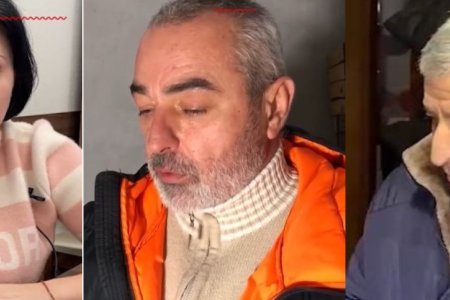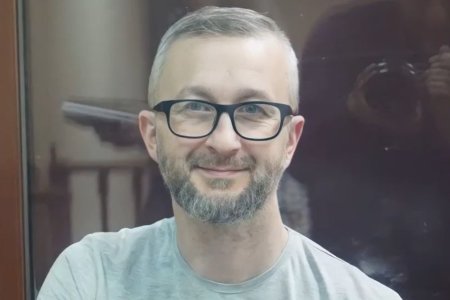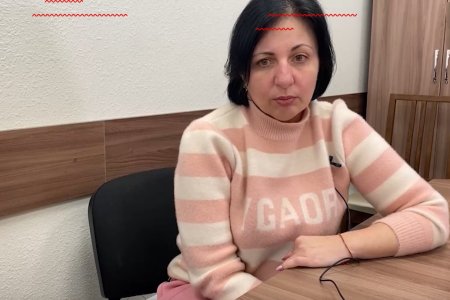
Russia has added three more Ukrainians, including 75-year-old Volodymyr Ananiev, to its notorious ‘List of Terrorists and Extremists’, a list already containing very many Ukrainian political prisoners. Ananiev, a Crimean, and a couple abducted from occupied Zaporizhzhia oblast, are accused of planning a purportedly thwarted attempt on the life of a Russian-installed Crimean official, with the charges almost certainly based solely on ‘confessions’ obtained through torture.
Russia’s FSB reported the ‘arrests’ of the three Ukrainians in February 2024, although only Ananiev’s initials were given, with no mention of his age, although the video produced showed him walking with a stick. Although it was claimed that Ananiev, Volodymyr Bodnar (b. 1974) and his wife, Oksana Shevchenko (45) had all admitted to involvement in a supposed ‘sabotage plot’, the FSB video broadcast on Russian state media showed only Bodnar ‘confessing’.

The report on 5 February 2024 asserted that the FSB had thwarted what they called “an SBU [Ukrainian Security Service] terrorist attack on one of the leaders of Crimea”, with the three Ukrainians described as ‘Russians’. Russia is applying coercion, including refusing vital medical care and denying people their ownership rights, to force Ukrainians to accept Russian citizenship. Under such circumstances, any Russian passport would hardly make the three ‘Russians’.
The charges are disturbingly reminiscent of the ‘Ukrainian saboteur plots’ that Russia’s FSB have been claiming to have ‘uncovered’ and prevented since soon after Russia’s invasion and annexation of Crimea. All of these are backed solely by ‘confessions’ given by people held incommunicado, without access to independent lawyers. On all occasions where the detainees have later been allowed proper lawyers (sometimes only after intervention from the European Court of Human Rights), they have retracted these ‘confessions’ as obtained through torture, including electric shocks, mock executions and beatings, as well as through threats against their families. Worth noting that, in several cases where the victims did finally receive legal representation, parts or all of the ‘confessions’ were not reflected in the indictment. The period during which people are held totally under FSB control is typically also used to illegally obtain DNA, to force people to leave fingerprints on explosives, etc.
As reported earlier, Bodnar seemed flustered in one place and looked as though he were trying to remember what he was supposed to say. This was in marked contrast to the rest of his brief ‘confession’ which was reeled off suspiciously quickly. As well as stating his date of birth and city, Zaporizhzhia, he said that he had been told by SBU officers to take “an explosive device of American or German make” to Melitopol which he allegedly did. He claims that he cut a hole out of a gas cannister and placed what he calls ‘a mine’ in it, wrapped this in a rag and carried it to Crimea.
All of this was supposed to have been in preparation for blowing up the car in a cortege of an unnamed ‘member of the Crimean leadership’ in February 2023. The FSB appear to be seriously claiming that the couple carried this ‘explosive’ through numerous checkpoints all the way to occupied Crimea, where they are alleged to have hidden it in a rented garage. The allegation with respect to Volodymyr Ananiev is that the 75-year-old was found to have another plastic-based and powerful explosive device.
The three Ukrainians are all charged, under Russian legislation, with an attempt to carry out a terrorist act, and on illegal possession of explosives. The scant details available raise more questions than they answer, and there seem strong grounds for doubting all parts of the FSB story. This, however, will not help the three Ukrainians who are facing long sentences, which Volodymyr Ananiev in particular, would be unlikely to survive.



